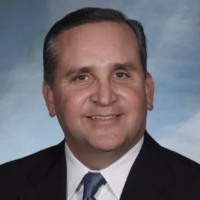Bushland Bankruptcy Lawyer, Texas
Includes: Bankruptcy Litigation, Commercial Bankruptcy, Consumer Bankruptcy, Dissolution
Patrick A. Swindell
✓ VERIFIEDConsumer Bankruptcy, Bankruptcy, Bankruptcy & Debt
An AV® Preeminent™ Peer Review Rated℠ attorney by Martindale-Hubbell®, Patrick Swindell focuses on bankruptcy law and civil litigation. He is a ... (more)
John Tyler Topper
Commercial Real Estate, Business & Trade, Credit & Debt, Bankruptcy
Status: In Good Standing Licensed: 15 Years
Rhett Jackson Hubbard
Real Estate, Litigation, Child Custody, Civil & Human Rights, Commercial Bankruptcy
Status: In Good Standing
Grant Zachary Gibson
Litigation, Personal Injury, State Appellate Practice, Commercial Bankruptcy
Status: In Good Standing Licensed: 11 Years
Bailey Elizabeth Hartman
Commercial Real Estate, Employee Rights, Credit & Debt, Bankruptcy
Status: In Good Standing Licensed: 3 Years
Brent Cole Huckabay
Juvenile Law, Estate Planning, Bankruptcy, Personal Injury, Family Law
Status: In Good Standing Licensed: 10 Years
Kay Lee Pechin
Commercial Real Estate, Estate Planning, Estate, Administrative Law, Bankruptcy
Status: In Good Standing Licensed: 30 Years
Kay Lee Pechin
Estate Planning, Bankruptcy, Administrative Law, Commercial Real Estate, Estate
Status: In Good Standing Licensed: 30 Years


